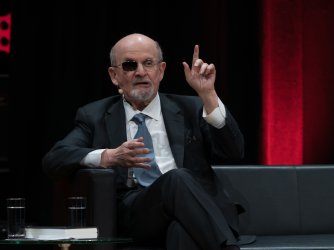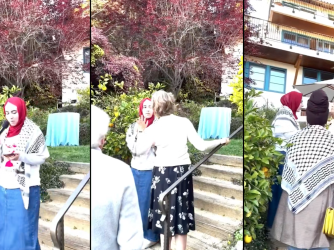Table of Contents
‘Inside Higher Ed’ on Student-Athletes and Social Media
Yesterday, Inside Higher Ed's Allie Grasgreen reported on recent legislation passed by the California State Senate prohibiting colleges and universities from requiring students "to disclose the user name or account password for a personal social media account or to otherwise provide the institution with access to any content of that account."
As Robert noted here on The Torch last week, in recent years we've seen institutions monitor one particular segment of the student population much more closely than any other: student-athletes. And as recent news out of Kentucky indicates, sometimes this monitoring borders on absurdity—as any student-athlete at the University of Kentucky (UK) who had the audacity to use the words "gay," "murder," or "alcohol" on his or her social media account might tell you.
Grasgreen's article solicits reaction from a UK athletics department spokesman:
The only content of concern is what the public can see because that is what affects "the brand" of the university and the athlete, the Kentucky athletics spokesman DeWayne Peevy said.
"If they're all wanting to have private accounts and not put it out to the public, I think we'd be all for it," he said. But Peevy also noted that most athletes want as many friends and followers as possible, widening the pool of potential witnesses to a faux pas. "We spend every day trying to protect their privacy here.... [Social media] is a tool, but if used wrong it's a dangerous tool." Only 10 or so of Kentucky's 500 athletes have been reluctant to install the software, Peevy said.
Spinning increased monitoring as an effort to protect student-athlete privacy is a pretty neat trick, but I'm not buying it. And the idea that a student-athlete's "brand" should be managed by the university's oversight of their freedom of expression is equally creepy. Here's what I told Grasgreen:
But athletes are more than walking billboards for their sports programs, said William Creeley, director of legal and public advocacy at the Foundation for Individual Rights in Education, a free speech and civil liberties advocacy organization that has criticized the Kentucky and Louisville policies. They're young people, expressive individuals, still-learning students.
"I think it should be concerning for folks who care about civil liberties on campus and folks who appreciate the importance of freedom of expression to recognize that a university's decision to monitor students' speech at all times just by virtue of their being a student-athlete kind of raises serious slippery slope problems," Creeley said. "First it's their Twitter feed, then it's their dorm room conversations, then it's their work in class, etc. It sends a strange message to student-athletes about what being a student-athlete entails."
Creeley posed these scenarios: If a devoutly religious student—"a Tim Tebow type"—proclaimed his or her beliefs online in a way that provoked controversy, would the university step in? And would a student have to think twice about posting about a friend who was killed by a drunk driver, because it will prompt a college official to lurk on their Facebook page?
"There's a normative argument to be made about student rights and university monitoring of students, and the fact that a student-athlete is still a student," Creeley said. "It's one thing to punish a student for mouthing off to their coach—it's another to monitor all communication on campus, which is starting to be the trend here.
Grasgreen's piece also includes excellent points from attorneys on the subject of university liability for monitoring student speech, particularly given the possibility of legislation similar to California's efforts passing elsewhere in the nation. Read the whole article here.
Recent Articles
FIRE’s award-winning Newsdesk covers the free speech news you need to stay informed.

Salman Rushdie calls out left-wing censorship in CBS interview

Western Washington University punishes racing team for sending a photo of a penis drawing on a pizza box

No, the Berkeley Law student didn’t have a First Amendment right to interrupt the dean’s backyard party
